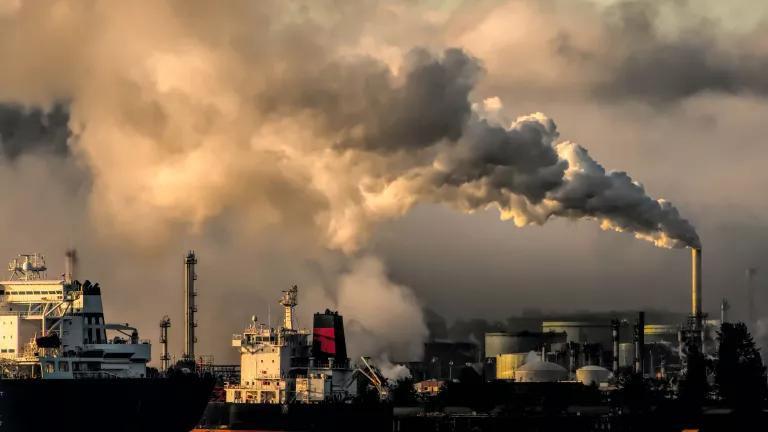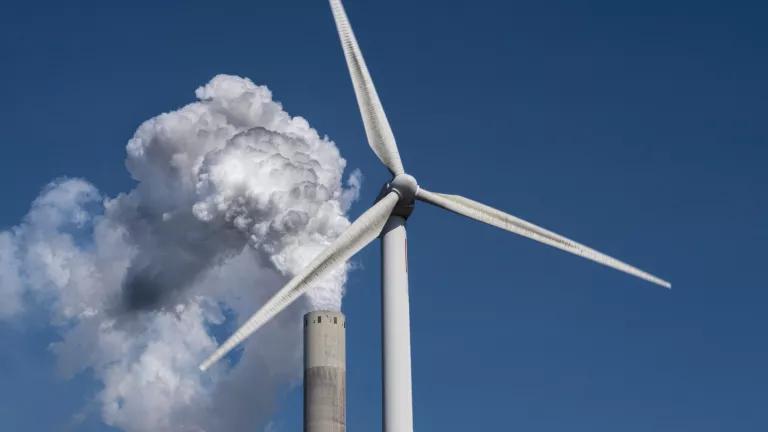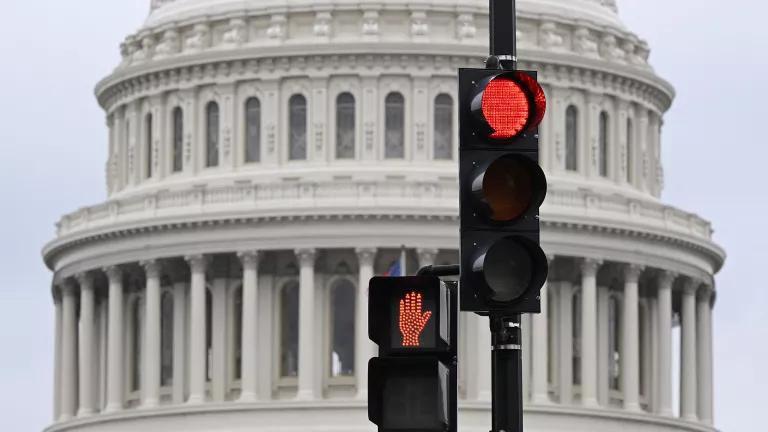Offshore Drilling: A Threat to Public Health & Climate Justice
Fossil fuels are a dirty business. New studies illuminate the public health threat posed by the oil and gas industry.

A Smokestack Emission of an Industrial Exhaust Pipes
Chris LeBoutilier via Pexels
The oil and gas industry has come under increased scrutiny for its devastating environmental and health impacts. As we strive to address the climate crisis and promote environmental and ocean justice, it is particularly important to consider what the latest scientific research is saying about the full costs of continued offshore drilling.
A recent study published in the journal Environmental Research: Health sets out in cold, hard – and alarming – numbers what Gulf communities have known for decades: that exposure to oil and gas emissions is linked to serious health consequences for nearby communities.
According to the study, the fossil fuel industry costs the U.S. approximately $77 billion in health impacts related to air quality and contributes to hundreds of thousands of early deaths annually. Respiratory issues, cardiovascular problems, and other serious illnesses are increasingly prevalent in areas located near offshore oil and gas facilities. The health risks extend far beyond those who work in the industry; they pose a direct threat to the well-being of communities living in close proximity to these dirty operations.
The health burdens itemized in the study fall disproportionately on Black, Brown, and Indigenous communities. While the study focuses on air pollution and human health impacts, communities of color are also more likely to live near polluting facilities. Environmental racism and injustice perpetuate an already existing pattern of inequity, placing marginalized communities at the forefront. These communities, often located near oil and gas facilities, bear the brunt of toxic air pollution and are more vulnerable to extreme weather events intensified by climate change.
The health impacts of offshore oil and gas drilling are not confined to specific regions like the Gulf Coast or Alaska; they have far-reaching consequences for the health and well-being of all of us. The study’s authors also calculated that each year particulate pollution in the air from the burning of fossil fuels causes an estimated 350,000 deaths in the U.S. The toll of offshore drilling on public health is a harsh reality that demands our attention and immediate action.
The reality is that as long as we continue to depend on fossil fuels, our communities will suffer. Moreover, the unfolding climate crisis, propelled by greenhouse gas emissions from the industry, causes trillions in damages annually—crippling our economy and destabilizing communities nationwide.
Transitioning to cleaner, justly-sourced renewable energy sources is increasingly urgent. We can break free from the hold of Big Oil and secure a healthier and more equitable future for generations to come. In fact, our climate and community health depend on it.
The research is unequivocal, and the stakes are higher than ever. Offshore oil and gas drilling poses a grave threat to public health and perpetuates climate injustices that burden marginalized communities.
We must take a stand and demand a just transition away from fossil fuels - including asking for no new offshore oil and gas leasing in the five-year program. Together, we can forge a path toward a sustainable future—one that safeguards the health of our communities and upholds the principles of environmental justice.




